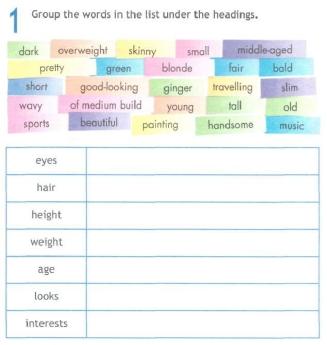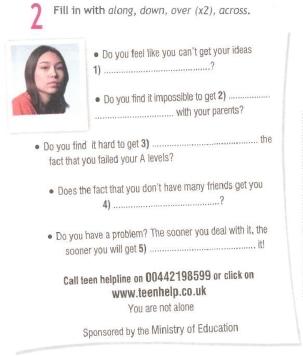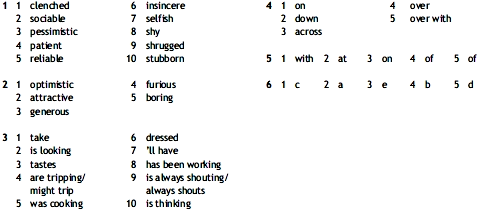Модуль 1 SOCIALISING (Общение)
Lesson 8 (___)
Тема: Across the Curriculum. PSHE (Personal Social & Health Education) Dealing with Conflict (Конфликты и их разрешение)
Цели: отработать навыки устной речи;
развивать умения высказываться по теме урока, читать и выделять требуемую информацию из текста;
развивать умения читать с определенной целью и извлекать нужную информацию;
развивать способности к распределению и переключению информационного понимания услышанного и прочитанного, сравнению и формулированию выводов, систематизация и представление материала по теме с опорой на текст и личный опыт;
формировать навыки к ведению беседы в группах;
проверить умение учащихся делать краткие высказывания по теме, обсуждать отдельные вопросы, выражать своё мнение, дискутировать, задавать вопросы, делать обобщения;
воспитывать нравственные ценности и ориентиры;
воспитывать культуру поведения через освоение норм этикета.
Активная лексика: greeting people, making small talks, visiting people at home, respect, kiss (sb) on the cheek, give them a hug, affectionate, small talk, marital status, hosts, acceptable.
Оборудование:УМК "Spotlight"- 8, под редакцией Ю.Е. Ваулиной, Дж. Дули, аудиодополнение, доска, презентация, НО.
ХОД УРОКА
ПОДГОТОВКА К ВОСПРИЯТИЮ ИНОЯЗЫЧНОЙ РЕЧИ (ОРГАНИЗАЦИОННАЯ ЧАСТЬ УРОКА)
Greeting 1.Беседа.
T: Good morning, boys and girls.
P-s: Good morning, teacher.
T: I’m glad to see you.
P-s: We are glad to see you too.
T: Sit down, please. Let’s start our lesson. Answer my questions, please. What date is it today?
P1: Todayis ….
Aim 2. Сообщение темы и цели урока.
T: Today we are telling about how to deal with conflict. Our slogan is: We are so different, but we are happy together.
T: We have friends, get across with them. But sometimes we argue.
-Who can translate this word? Who can explain it?
So, argument in Russian is ссора. . Who can explain it in English?
Suggesting answer of students. Argument is misunderstanding of two people.
Warming-up 3.Введение в иноязычную атмосферу.
T:What we are? What character adjectives do you know? Lets remember them.
Учащиеся разбиваются по рядам (колонкам) и называют имена прилагательные один за другим по цепочке. Одной колонке надо назвать общеизвестные имена прилагательные, обозначающие черты характера человека, второй – только положительные имена прилагательные, третьей – отpицательные.
T: We are working desk by desk.
-First coloumn, please.
-Second coloumn, name only positive character adjectives.
-Third coloumn, name only negative character adjectives.
Учащиеся называют имена прилагательные, характеризующие личность, исходя из предыдущих уроков и сверяют свои ответы со слайдами презентации 3,4.
The next task: continue my sentences (about your relationships with each other).(Слайд 5).
-First coloumn: We are usually…..
-Second coloumn: Sometimes we are …
-Third coloumn: We are never…
Учащиеся продолжают предложения о себе и своих взаимоотношениях с друзьями и родителями.
Checkon 4. Фронтальныйопрос.
HomeworkУстная или письменная проверка лексического материала прошлых уроков.
ОСНОВНАЯЧАСТЬУРОКА
Listening 1. Развитие умений прогнозирования содержания текста по заголовку и с опорой на стихотворение в качестве эпиграфа. Ex 1, p28.
T: Open your SB at page 22 and do ex. 1. Listen to the poem. How is the poem related to the title of the text?
P1: Two people have argument, but at the end they deal with their conflict.
P2: The title of the poem is ‘Argument’ which is exactly what the poem is about. The words in the poem are made up of two people contradicting each other.
Speaking 2. Развитие умений монологической речи. Discussing a poem Ex 2, p28.
T: Let’s discuss how to handle and deal with arguments. Work in pairs, discuss dealing with an argument.
P1: How do you deal with arguments?
P2: I try not to argue with people. I hate arguments. If people are arguing, I try to keep out of it. What about you?
P1: I don’t like them either, but sometimes I argue for ages with people. I try to get them to see my point of view. I try not to shout or get emotional.
P2: That’s the best thing to do.
Reading 3. Развитие умений изучающего чтения. Reading to identify missing text/
understanding new vocabulary. Ex 3, p28.
T: Your home task was ex.3. You have read the text “Dealing with conflict” and complete the gaps 1-5.
Учитель просит учащихся объяснить значение слов без словаря. Запись слов в словарь (домашнее задание).
| Show up | [ ʃəʊ ʌp] | Проявляться |
| Frustrated | [ frʌsˈtreɪ.tɪd ] | Расстроенный |
| Annoyed | [ əˈnɔɪd ] | раздраженный |
| disappointed | [ ˌdɪsəˈpɔɪntɪd ] | Разочарованный |
| Resolving | [ rɪˈzɒlv ] | Принимающий решение |
| Process | [ ˈprəʊses ] | Процесс |
| Blame | [ bleɪm ] | Винить, обвинять |
| Accuse | [ əˈkjuːz ] | Обвинять |
| Boss around | [ bɒs əˈraʊnd ] | Приказывать |
| flexible | [ ˈflek.sɪ.bl̩ ] | гибкий |
show up ― appear
frustrated ― feeling upset or angry because you are unable to do anything about a problem
annoyed ― fairly angry about sth
disappointed ― feeling sad because sth has not happened/because sth is not as good as you hoped
resolving ― solving
process ― series of actions carried out in order to achieve a particular result
blame ― say sb is responsible for sth, even if they may not be
accuse ― tell sb you think they did sth
boss me around ― bully me
flexible ― adaptable
P: 1 how 2 at 3 them 4 since/because/as 5 other
T: Lets listen and check. Are you ready to check again? Help me, please.
ФИЗКУЛЬТМИНУТКА ПЕСНЯ SS1
Speaking 4. Развитие умений аналитического говорения.
a) Expressing feelings. Ex 4, p28.
T: Change the statements. Use the adjectives “bad, upset, sad”.
P1: 2 I am disappointed that you are late again. I don’t feel I can rely on you.
P2: 3 I don’t feel I can believe what you say anymore, as there have been so many lies.
P3: 4 I wish you would listen to me for once!
b) Развитие умений выражать свои мысли и чувства в ситуации разрешения конфликта. Summarising a text. Ex 5, p28.
Обсуждение темы: дать советы другу, что следует (Группы № 1,3) и чего не следует делать (Группы № 2,4) в конфликтной ситуации .
Lets do Ex.5, p. 23. Your friend gets angry very easily. Use the ideas in the text to advise him\her how to control his\her anger and resolve a conflict.
Форма работы: в группах. You are working in groups in four people.
Groups 1, 3 give 4 advice what you should do in conflict situation.
Groups 2, 4 give 4 advice what you should not do in conflict situation.
P: You cannot resolve conflict when you are feeling angry. You must take a deep breath and calm down. Only then will you be able to discuss the problem. It may help to count to 10 or imagine that you are in a relaxing place ― do something to make yourself feel better. When you speak, try not to blame or accuse the other person. Also, try to use ‘I’ statements.
Writing 5. Развитие умений письма. Writing a poem about arguing/ understanding opposites. Ex 6, p28.
T: Look through words in the list. Work in pairs, find opposites with dictionary and write your poems.
P: The never-ending argument
Happy! Sad! Will! Won’t!
Bad! Good! Hot! Cold!
Come! Go! Young! Old!
Fast! Slow! Day! Night!
Do! Don’t! Dark Light!
Speaking 6. Pазвитие умений монологической речи (выражение личного аргументированного мнения). Discussing the text (dealing with conflict). Ex 7, p28.
Учащиеся выбирают 4 совета, которые ему подходят более всего, записывают их в тетрадь и затем обосновывают причину их выбора.
T: Now you choose and write down in your exercise-books 4 advice which you like the most. You are different, and you deal with conflict in different way. How do you deal with conflict? Today we learn how to deal with conflict and control you anger.
Read text again. Let’s discuss statements in text and whether you agree or not with them.
A: I agree with the text about how easy it is for a conflict to become very bad with people screaming and even hitting. It has happened to me before.
B: I think it’s really important not to blame or accuse people when discussing a problem, as it doesn’t help.
C: Yes, I agree, it’s important to use “I feel” statements also.
D: I agree that being flexible and listening to the way the other person sees the problem helps when solving a problem.
ЗАКЛЮЧИТЕЛЬНАЯ ЧАСТЬ УРОКА
Homework 1. Домашнее задание.
T: Open your diaries, please, and write down your home task: Письменно выполнить упр.5 стр.138. Повторить лексический материал прошлых уроков. Выучить новые слова. Повторить песню SS1. Подготовить доклад Socialising in the UK.
Summarizing 2. Подведение итогов урока.
T: What did we do? What did we learn? What was difficult? Did you like our lesson? Your marks are…
Контакт с конфликтом.
Потеря друзей почти так же легка как подружиться, если Вы не знаете 1)......., чтобы иметь дело с гневом и конфликтом. Конфликт - часть общей жизни. Это обнаружится в школе на работе и 2)....... главная страница. Международная федерация хорошо, чтобы чувствовать себя сердитым, разбитым, раздражаемым, разочарованным или печальным. Эти чувства естественные, но это - как Вы имеете дело с 3)......., который имеет значение. Некоторые люди кричат, кричат, клянутся, обзывают людей, пытаются отомстить или даже поразить человека, который повредил их. Другие прилагают все усилия, чтобы держаться подальше от разногласий, 4)....... очень немногие имеют дело с конфликтами успешно.
Решение конфликта является пошаговым процессом. Прежде, чем Вы будете начинать обсуждать проблему, будете остывать, будете считать до 10, глубоко вздыхать и воображать расслабляющееся место. Затем скажите, что действительно беспокоит Вас. Делая это, смотрите, как Вы выражаете свои мысли. Не обвиняйте или обвиняйте. Акция, как Вы чувствуете при помощи "I" утверждений. Например, не говорите, что "Вы всегда управляете мной вокруг," но "Я чувствую себя расстроенным, потому что Вы не обращаете внимание на то, что я думаю."
Вы хотите, чтобы люди услышали, что Ваше мнение так удостоверяется Вы практика что Вы preach2. Внимательно прослушайте к 5)....... человек и признайте, что он или она мог бы видеть проблему по-другому. Будьте гибки и непредубежденными, готовыми принести извинения, простить и переместиться.






















